Stories from and about library student employees and interns.
Student Stories
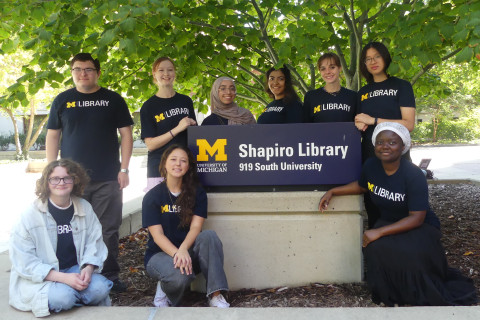
Posts in Student Stories
Showing 91 - 100 of 144 items
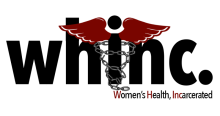
- Bhavana Sai Garapati
Although the United States only has about 5% of the world’s population, it holds about 25% of the world’s prison population. According to the Prison Policy Initiative, the U.S. currently has about 2.3 million people in a variety of confinement facilities like federal and state prisons, local jails, juvenile correctional facilities, immigration detention centers, military prisons, civil commitment centers, and even state psychiatric hospitals to name some. While women currently make up approximately 10% of the currently incarcerated population, it is important to understand that the rate at which women are being incarcerated has been twice as much as men since the 1980s. Statistics collected by the Sentencing Project show that since the 1980s the number of women who are incarcerated has increased by more than 750%.
We found that many of the current resources speaking about mass incarceration in America are centered on the experiences of men but not as much is said about the experiences of women and gender nonconforming individuals. We believe that when discussing criminal justice reform, it is absolutely necessary to include women and gender nonconforming individuals in the discussion because their experiences precarcerally, carcerally, and postcarcerally, are uniquely shaped by their gender. Referring back to the Sentencing Project, 80% of women in jails are also mothers, most of whom were the primary caretakers for their children before being incarcerated. When women are incarcerated, there are these unique issues such as reproductive health that affect them and their families in ways that men do not necessarily experience. With this in mind, we wanted to create a platform to inform the general public about the experiences of women in the criminal justice system and create a space for those directly and indirectly affected by the carceral state to talk about their lived experiences and areas of expertise. We wanted to place a general focus on health because we believe that our current criminal justice system is a growing public health concern and is often left out of the conversation when we, as a society, talk about access to healthcare, among other things. Millions of individuals are getting locked up everyday for substance abuse offenses when they should be getting better access to treatments and resources to help with addiction as well as other monetary and mental health related concerns. Thousands of incarcerated pregnant women face horrific conditions because they lack any kind of proper access to reproductive healthcare. All of this--and more--needs to be brought to the attention of the public.
We found that many of the current resources speaking about mass incarceration in America are centered on the experiences of men but not as much is said about the experiences of women and gender nonconforming individuals. We believe that when discussing criminal justice reform, it is absolutely necessary to include women and gender nonconforming individuals in the discussion because their experiences precarcerally, carcerally, and postcarcerally, are uniquely shaped by their gender. Referring back to the Sentencing Project, 80% of women in jails are also mothers, most of whom were the primary caretakers for their children before being incarcerated. When women are incarcerated, there are these unique issues such as reproductive health that affect them and their families in ways that men do not necessarily experience. With this in mind, we wanted to create a platform to inform the general public about the experiences of women in the criminal justice system and create a space for those directly and indirectly affected by the carceral state to talk about their lived experiences and areas of expertise. We wanted to place a general focus on health because we believe that our current criminal justice system is a growing public health concern and is often left out of the conversation when we, as a society, talk about access to healthcare, among other things. Millions of individuals are getting locked up everyday for substance abuse offenses when they should be getting better access to treatments and resources to help with addiction as well as other monetary and mental health related concerns. Thousands of incarcerated pregnant women face horrific conditions because they lack any kind of proper access to reproductive healthcare. All of this--and more--needs to be brought to the attention of the public.
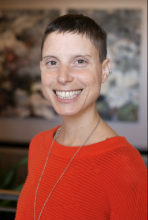
- Marisol Fila
The magazine O Menelick 2Ato is an independent editorial initiative - with a journalistic bias – that aims to reflect on and enhance the cultural and artistic production of the black diaspora in the Americas, with special emphasis on Brazil.
O Menelick 2Ato , created in 2010 in the city of São Paulo, has more than 20 printed editions published, and it’s always distributed for free throughout Brazil. More than 40 thousand copies of the magazine have been distributed over the 10 years of the project's existence. In spite of bringing together collaborators from the most diverse areas of artistic and cultural production - both Brazilians and foreigners - who understand the magazine as a space to share their perspectives and foster their ideas, creativity and concerns regarding the 21st century Brazilian black community, the magazine is closely linked to the history of the black press in Brazil. This connection begins with its title: O Menelick 2Ato honors one of the most important periodicals in the Paulista press, the newspaper O Menelick (1915).
I got to know Nabor Jr and Luciane Ramos Silva, the two editors of the magazine, during a research trip in São Paulo in 2018. Besides their work as editors of the magazine, Luciane Ramos Silva is an anthropologist, choreographer and dancer and Nabor Jr works as a journalist and independent photographer, while also being a staff member of the Museum Afro Brazil, one of the most important museums on African diaspora in the Americas. We have been working together on different projects since 2018, and in March 2019 Luciane Ramos Silva visited U-M to offer a series of workshops and talks on black press in Brazil. Aiming to build on this collaborative partnership, we started working on a special edition of their last issue in English. Until now, the magazine has been published only in Portuguese so having a first edition in English would help to reach new audiences as well as to bring awareness of different experiences of the black diaspora in the Americas.
O Menelick 2Ato , created in 2010 in the city of São Paulo, has more than 20 printed editions published, and it’s always distributed for free throughout Brazil. More than 40 thousand copies of the magazine have been distributed over the 10 years of the project's existence. In spite of bringing together collaborators from the most diverse areas of artistic and cultural production - both Brazilians and foreigners - who understand the magazine as a space to share their perspectives and foster their ideas, creativity and concerns regarding the 21st century Brazilian black community, the magazine is closely linked to the history of the black press in Brazil. This connection begins with its title: O Menelick 2Ato honors one of the most important periodicals in the Paulista press, the newspaper O Menelick (1915).
I got to know Nabor Jr and Luciane Ramos Silva, the two editors of the magazine, during a research trip in São Paulo in 2018. Besides their work as editors of the magazine, Luciane Ramos Silva is an anthropologist, choreographer and dancer and Nabor Jr works as a journalist and independent photographer, while also being a staff member of the Museum Afro Brazil, one of the most important museums on African diaspora in the Americas. We have been working together on different projects since 2018, and in March 2019 Luciane Ramos Silva visited U-M to offer a series of workshops and talks on black press in Brazil. Aiming to build on this collaborative partnership, we started working on a special edition of their last issue in English. Until now, the magazine has been published only in Portuguese so having a first edition in English would help to reach new audiences as well as to bring awareness of different experiences of the black diaspora in the Americas.
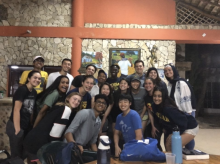
- Julia Yee
The Pre-Medical Club’s (PMC) Alternative Spring Break (ASB) is a health-oriented service and educational trip for students at the University of Michigan. Since its beginning in the early 2000s, PMC has worked with the Community Service Alliance (CSA) in the Dominican Republic to organize and plan the spring breaks each year. CSA is a multi-faceted organization which strives to empower communities through health initiatives, educational and youth programs, and a focus on supporting female community members. We have continued to partner with CSA throughout the years because of the positive effects we observe in the communities and because of the level of involvement they permit students to have.
Although CSA has many projects in multiple areas throughout the Dominican Republic, our group has chosen to orient our spring breaks around their health initiatives and educational programs. Additionally, the past four years we have been in the same province: Hato Mayor. Each year, the details of the project change, however the objectives remain the same. Following the goals of CSA, we hope to empower and build up communities in terms of health to a point where they can continue health practices safely and independently after we and CSA leave.
Our spring break this year focused on two main projects: water filter installation and bathroom construction. Before embarking on our journey, CSA provided us with the schedule and project goals. We aimed to install eight water filters and construct two bathrooms in two separate communities during our five days of work. Along with the manual work, we also allotted two afternoons of the trip to speak with school children about hand-washing and general hygiene tips. On the schedule were other events where we could learn more about the Dominican Republic and its health system and culture. These events included a tour of a cacao farm, dance lessons from a local dance group, and a visit to a local health clinic for a presentation and a Q&A session.
Although CSA has many projects in multiple areas throughout the Dominican Republic, our group has chosen to orient our spring breaks around their health initiatives and educational programs. Additionally, the past four years we have been in the same province: Hato Mayor. Each year, the details of the project change, however the objectives remain the same. Following the goals of CSA, we hope to empower and build up communities in terms of health to a point where they can continue health practices safely and independently after we and CSA leave.
Our spring break this year focused on two main projects: water filter installation and bathroom construction. Before embarking on our journey, CSA provided us with the schedule and project goals. We aimed to install eight water filters and construct two bathrooms in two separate communities during our five days of work. Along with the manual work, we also allotted two afternoons of the trip to speak with school children about hand-washing and general hygiene tips. On the schedule were other events where we could learn more about the Dominican Republic and its health system and culture. These events included a tour of a cacao farm, dance lessons from a local dance group, and a visit to a local health clinic for a presentation and a Q&A session.
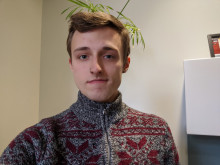
- Logan Burley
Gender is a powerful social category that individuals constantly use to make sense of both themselves and those around them. The Western world splits people into two categories: woman and man. These two gender categories can be used to visually sort almost all things. Individuals constantly attribute masculinity of femininity not only to people, but to animals and objects, too. With this in mind, my thesis hoped to examine how individuals interpret the gender cues that others present, particularly those present in the face. Individuals who identify outside of the man-woman dichotomy are gaining increased visibility. The core question is how has the increasing visibility of the nonbinary community begun to change how people conceptualize gender, particularly in how they perceive the gender of others?
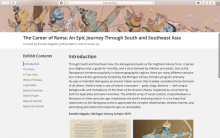
- Estrella Raquel Salgado
Rising junior Estrella Salgado reflects on her experience as a Michigan Library Scholar during the summer of 2019. Her project led her to create an online exhibit about one of the world's greatest epics, the Ramayana. This experience led to increased cultural appreciation, effective organization skills, and a heightened interest in library careers.
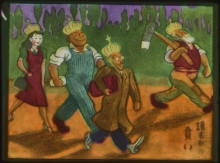
- Dorothy Feixuan Ma
Dorothy Ma's Final Reflection Blog Post for the 2019 Michigan Scholars Program, the Increasing Accessibility to Digital Image Collections in Japanese Studies project.

- Liesa Nicole Bruin
Ever wonder what rights you have to your work? Rising junior Liesa Bruin shares her experience working with the U-M Library Copyright Office (LCO) as a Michigan Library Scholar.
•
- Shaima Abdullah
This summer we joined the Library Environments department for an internship focused on exploring the meaning of library as a place in different countries and cultures, in order to help the U-M Library make its spaces more welcoming and inclusive for our international students. The objective of this project was to learn how scholars in other countries engage with library spaces: the kinds of spaces available, and norms for their use. In this blog post we reflect on our experiences in the internship.

- Emily Bloom
This past summer, I had the opportunity to work with the U-M Library Copyright Office (LCO) to develop a resource on international copyright law. As a rising senior who was still unsure of what I wanted to do after college, I am constantly looking for experiences to help guide me to a decision. This internship did just that. Interning with the Michigan Library Scholars Program not only helped me decide what I want to do once I graduate, but it aided my professional and academic growth.
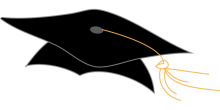
- Meghan Kate Brody
Graduating senior Meggie Brody shares what she learned from working in a variety of positions at U-M Library, and says, "If I can leave future U-M students with one piece of advice, it would be this: don’t be afraid to ask."